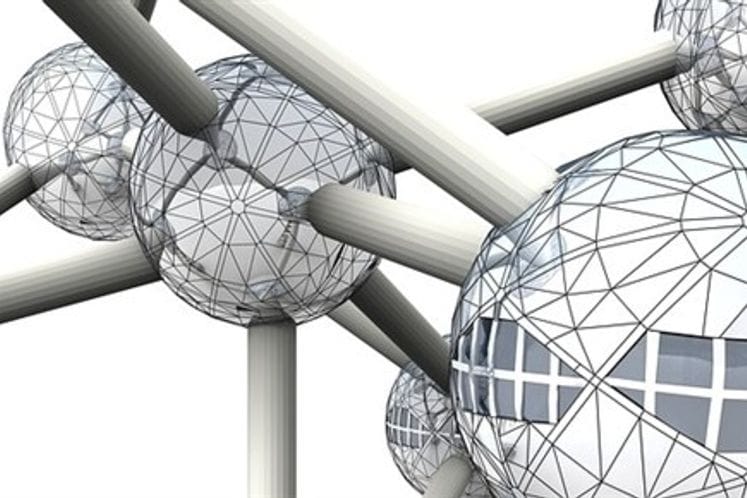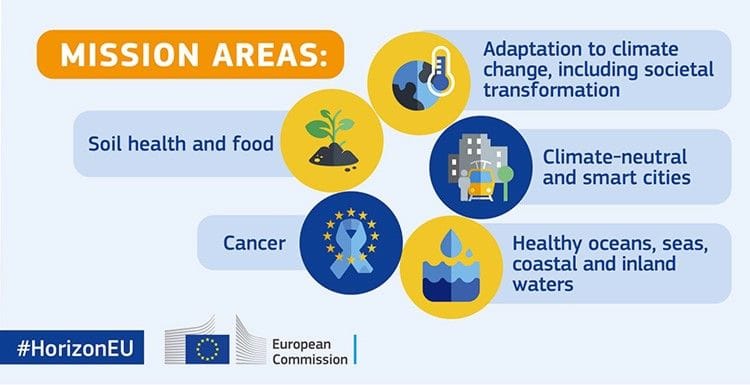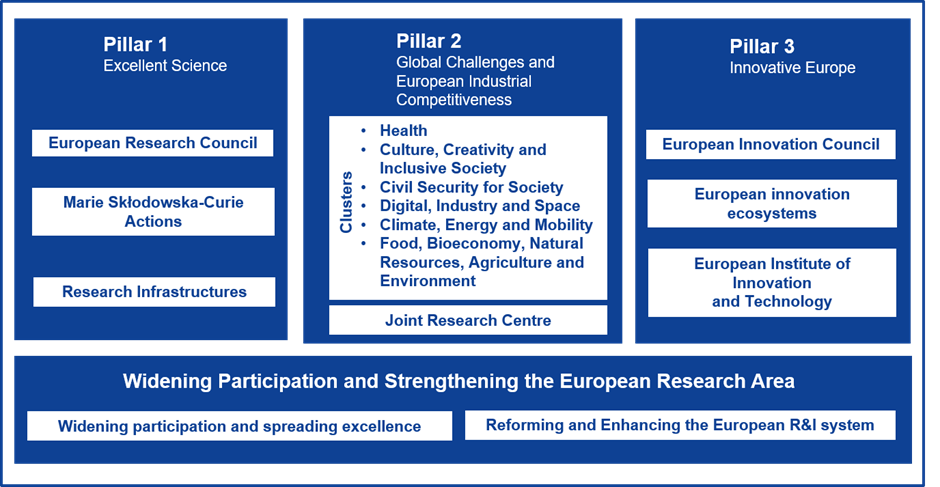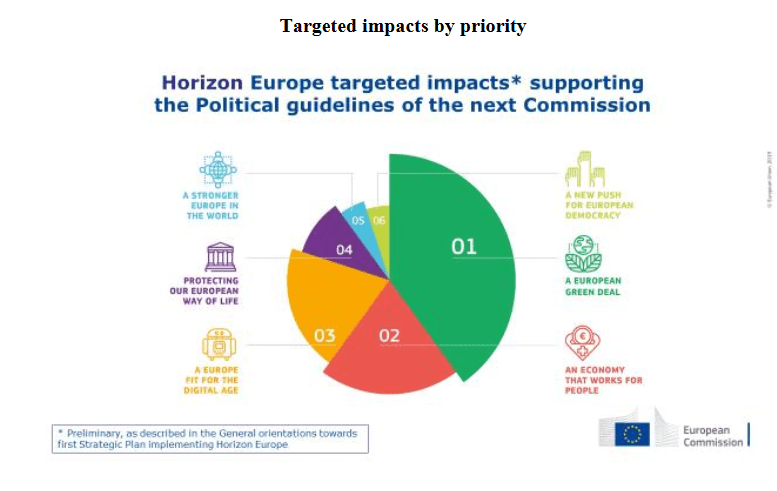- Government of Montenegro
Ministry of Education, Science and Innovation View from Brussels II: “European Green Deal” of th...
Please note: The page below represents the archived content relating to the previous Government of Montenegro. Some of the information might be inaccurate or outdated.
Archive
View from Brussels II: “European Green Deal” of the European Commission and its relevance for science and innovation

Published on: Jan 21, 2020 • 5:09 PM Author: Ministry of Science
The new European Commission, led by Ursula von der Leyen, started its mandate in late 2019, announcing the transformation of Europe through the so-called European Green Deal. The Green Deal is not an individual project or legislative act, but a strategy that includes as many as fifty specific policy measures. Presenting the plan to the European Parliament on 12 December 2019, the EC President promised that the plan would leave no one behind in an effort to achieve a climate neutral continent by 2050. “The European Green Deal is our new growth strategy – it is a strategy for growth that gives more back than it takes away. It shows how to transform our way of living and working, of producing and consuming so that we live healthier and make our businesses innovative. We can all be involved in the transition and we can all benefit from the opportunities. We will help our economy to be a global leader by moving first and moving fast. We are determined to succeed for the sake of this planet and life on it – for Europe’s natural heritage, for biodiversity, for our forests and our seas. By showing the rest of the world how to be sustainable and competitive, we can convince other countries to move with us”, von der Leyen said.
The European Green Deal provides a roadmap with actions to boost the efficient use of resources by moving to a clean, circular economy and stop climate change, revert biodiversity loss and cut pollution. It outlines investments needed and financing tools available, and explains how to ensure a just and inclusive transition. The European Green Deal covers all sectors of the economy, notably transport, energy, agriculture, buildings, and industries such as steel, cement, ICT, textiles and chemicals.
To set into legislation the political ambition of being the world’s first climate neutral continent by 2050, the Commission will present within 100 days the first ‘European Climate Law'. To reach its climate and environmental ambition, the Commission will also present the Biodiversity Strategy for 2030, the new Industrial Strategy and Circular Economy Action Plan, the Farm to Fork Strategy for sustainable food and proposals for pollution-free Europe. Work will immediately start for upping Europe’s 2030 emissions targets, setting a realistic path to the 2050 goal.
One of the main issues is how to finance huge costs of the climate transition, especially in those parts of Europe where there is large dependency on coal and other fossil fuels. The European Commission has announced a fund worth EUR 100 billion for support to such regions, in cooperation with the European Investment Bank. In total, EIB should allocate as much as up to EUR 1 trillion for climate transition financing over the next decade. Gunnar Muent, Deputy Director General at EIB, says that the Bank had made a major step forward by deciding to stop financing projects related to the use of fossil fuels. In early 2020, the Commission will launch a Sustainable Europe Investment Plan to help mobilise the necessary public and private funding. Moreover, at least 25% of the EU’s long-term budget should be dedicated to climate action. From airlines to carmakers, companies will need to prepare their plans to achieve climate goals. To encourage the private sector to contribute to financing the green transition, the Commission will present a Green Financing Strategy in 2020. Climate neutrality does not mean that by 2050 there will be no more gas emissions and that oil and coal will be completely discarded, but that they will be reduced or “offset” by some other mechanisms to bring the net emissions to zero.
Scientists warn that the effects of climate change are occurring faster than expected. According to the World Meteorological Organization, the average temperature of the Earth could, if no action is taken, rise by three to five degrees by the end of this century, which would be the greatest climate change since the last ice age.
Science and innovation are crucial to the implementation of the European Green Deal. The Deal calls on mobilising research and fostering innovation. New technologies, sustainable solutions and innovation are critical to achieve the objectives of the Deal. In synergy with other EU programmes, “Horizon Europe”, a new framework programme for science and research (as of 2021), will play a pivotal role in leveraging public and private investments. At least 35% of the budget of Horizon Europe will fund new solutions for climate, which are relevant for implementing the Green Deal. The mission areas planned – 1. Healthy oceans, seas, coastal and inland waters; 2. Climate-neutral and smart cities; 3. Soil health and food; 4. Adaptation to climate change, including societal transformation – will directly support the Green Deal. A firm recommendation by the Commission is that the fifth mission, relating to cancer, is also in line with the Deal.

The European Green Deal provides a roadmap with actions to boost the efficient use of resources by moving to a clean, circular economy and stop climate change, revert biodiversity loss and cut pollution. It outlines investments needed and financing tools available, and explains how to ensure a just and inclusive transition. The European Green Deal covers all sectors of the economy, notably transport, energy, agriculture, buildings, and industries such as steel, cement, ICT, textiles and chemicals.
To set into legislation the political ambition of being the world’s first climate neutral continent by 2050, the Commission will present within 100 days the first ‘European Climate Law'. To reach its climate and environmental ambition, the Commission will also present the Biodiversity Strategy for 2030, the new Industrial Strategy and Circular Economy Action Plan, the Farm to Fork Strategy for sustainable food and proposals for pollution-free Europe. Work will immediately start for upping Europe’s 2030 emissions targets, setting a realistic path to the 2050 goal.
One of the main issues is how to finance huge costs of the climate transition, especially in those parts of Europe where there is large dependency on coal and other fossil fuels. The European Commission has announced a fund worth EUR 100 billion for support to such regions, in cooperation with the European Investment Bank. In total, EIB should allocate as much as up to EUR 1 trillion for climate transition financing over the next decade. Gunnar Muent, Deputy Director General at EIB, says that the Bank had made a major step forward by deciding to stop financing projects related to the use of fossil fuels. In early 2020, the Commission will launch a Sustainable Europe Investment Plan to help mobilise the necessary public and private funding. Moreover, at least 25% of the EU’s long-term budget should be dedicated to climate action. From airlines to carmakers, companies will need to prepare their plans to achieve climate goals. To encourage the private sector to contribute to financing the green transition, the Commission will present a Green Financing Strategy in 2020. Climate neutrality does not mean that by 2050 there will be no more gas emissions and that oil and coal will be completely discarded, but that they will be reduced or “offset” by some other mechanisms to bring the net emissions to zero.
Scientists warn that the effects of climate change are occurring faster than expected. According to the World Meteorological Organization, the average temperature of the Earth could, if no action is taken, rise by three to five degrees by the end of this century, which would be the greatest climate change since the last ice age.
Science and innovation are crucial to the implementation of the European Green Deal. The Deal calls on mobilising research and fostering innovation. New technologies, sustainable solutions and innovation are critical to achieve the objectives of the Deal. In synergy with other EU programmes, “Horizon Europe”, a new framework programme for science and research (as of 2021), will play a pivotal role in leveraging public and private investments. At least 35% of the budget of Horizon Europe will fund new solutions for climate, which are relevant for implementing the Green Deal. The mission areas planned – 1. Healthy oceans, seas, coastal and inland waters; 2. Climate-neutral and smart cities; 3. Soil health and food; 4. Adaptation to climate change, including societal transformation – will directly support the Green Deal. A firm recommendation by the Commission is that the fifth mission, relating to cancer, is also in line with the Deal.

In accordance with the proposal of the Commission, Clusters 4, 5 and 6 within Horizon Europe will be financed with EUR 40 billion. This constitutes 75% of Pillar 2 – Global Challenges and European Industrial Competitiveness and will also make direct contribution to the goals of the European Green Deal.
With a proposed budget of EUR 15 billion, Cluster 4 will particularly foster climate-neutral, circular and clean industry, enhance the autonomy of critical raw materials, boost green ICT through development of components with low energy consumption, develop space services mitigating climate change and protecting the environment.
With a proposed budget of EUR 15 billion, Cluster 5 will focus on climate science and solutions for a climate-neutral and resilient society, new multidisciplinary solutions for decarbonisation (batteries, hydrogen, other types of energy storage), a greenhouse effect energy system focused on renewable energy, low carbon transport solutions in all modes.
With a proposed budget of EUR 10 billion, Cluster 6 will particularly support halting the decline of biodiversity and restoring ecosystems, sustainable and circular management of natural resources, sustainable primary production, safe and healthy food and bio-based systems.
With a proposed budget of EUR 15 billion, Cluster 4 will particularly foster climate-neutral, circular and clean industry, enhance the autonomy of critical raw materials, boost green ICT through development of components with low energy consumption, develop space services mitigating climate change and protecting the environment.
With a proposed budget of EUR 15 billion, Cluster 5 will focus on climate science and solutions for a climate-neutral and resilient society, new multidisciplinary solutions for decarbonisation (batteries, hydrogen, other types of energy storage), a greenhouse effect energy system focused on renewable energy, low carbon transport solutions in all modes.
With a proposed budget of EUR 10 billion, Cluster 6 will particularly support halting the decline of biodiversity and restoring ecosystems, sustainable and circular management of natural resources, sustainable primary production, safe and healthy food and bio-based systems.

In 2020, the Commission will launch a new H2020 Climate Action Call to support the Green Deal. In this manner, the transition will be made between H2020 and Horizon Europe and the contribution of science and innovation to climate goals will be strengthened. This Call will show the citizens of Europe that the new European Commission is taking immediate action. A new wave of European research and innovation partnerships within Horizon Europe is also planned, with a view to launch major environmental, social and economic transformation brought about by the Green Deal. The Commission will work closely with the industry and Member States to support partnerships in critical areas such as energy, transport, biodiversity and circularity in industry. The chart below provides an indicative overview of support for the political priorities of the Commission led by Ursula von der Leyen.

Related articles:
Request for prequalification Jan 17, 2025
Is this page useful?
